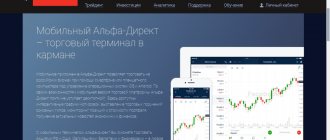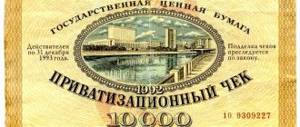The first mutual funds appeared in the United States back in the 20s of the last century. But the form of collective investment became especially popular in the 70s and 80s. At that time, American investors received the greatest income from investments in government bonds. However, these securities could only be purchased if there was capital in excess of $10,000. Those who did not have such money joined together in an investment group (“pool of investors”), thus creating a fund with the necessary capital.
In Russia, this form of collective investment arose in 1996, after Decree of the President of the Russian Federation No. 765 “On additional measures to improve the efficiency of the investment policy of the Russian Federation” dated July 26, 1995, which determined the procedure for the creation and functioning of a new investment institution.
This institution of mutual funds began to fully develop in 2001, after the adoption of the federal law on investment funds. According to the law, mutual funds in Russia are open, closed and interval (mixed type). Closed-end funds (closed-end mutual funds) have shown the greatest growth in investment in recent years in Russia.
Closed mutual funds, in particular, are now developing in the commercial real estate market. For example, Sberbank’s subsidiary, Sberbank Asset Management, is beginning to sell shares of a closed-end mutual fund focused on commercial real estate to a wide range of private investors. The expected return for investors is 15% per annum, which is much higher than the rate on bank deposits in the same Sberbank.
What is a mutual fund?
Collective investments are slowly replacing participants in this market who act alone. And this is understandable, because by operating with a large total amount, you can achieve significantly greater profits. At the same time, such associations themselves arose as a real need of the time - more and more people are appearing with a nest egg for a rainy day, who understand that money must work and make a profit - otherwise, inflation will eat it up under the mattress. But in order to invest in anything, you need to have basic financial literacy, which many people completely lack. This is where mutual funds come to the rescue.
Mutual Investment Fund (Unit Investment Fund) is a collective investment association operating on the basis of trust management, which increases the funds of its investors after the latter purchases individual shares of the organization - shares.
In essence, such a fund operates on the principle of trust management. As an investment instrument, mutual funds are gaining more and more fans, due to a number of advantages:
- Profitability is higher than banking.
- Low risk.
- There is state control, the funds operate officially.
- At any time, the investor can sell the share and get his money back.
- Money is transferred to the management of real professionals who are interested in the profitability of operations.
- Anyone can enter a mutual fund, the main thing is to have the required amount and age.
- Many mutual funds offer investors a low entry threshold - there are investment options from a couple of thousand rubles.
Investment share
By investing in a mutual fund, an investor does not simply give his money to an unknown person without any confirmation - the investment is made by purchasing a share. Simply put, a share is that share of the fund for which the investor paid money, which means it becomes his property and begins to generate income for the investor. In this case, the investor receives an extract from the fund’s register, which indicates all the details of the purchase of the share.
If an investor at some point changes his mind about cooperating with the mutual fund, he will simply sell his share. This happens quickly and effortlessly - you simply write an application for the sale of a share and receive money into your account.
Rights of shareholders
A person who is a fund participant has an absolute right to his share of the income that can be obtained from skillful investment management of mutual financial assets. If the money was invested in real estate, then the shareholder will necessarily receive ownership of such an object. However, he will not be able to dispose of the area. The investment document will state that the owners of the real estate are all participants of the closed mutual fund.
The user can sell his share securities on the stock market. The final investment price of a share depends on many factors. If necessary, you can calculate the prices of net financial assets of a closed mutual fund. The final figure sums up the book value of funds and accounting accounts available to the organization.
What types of mutual funds are there?
There are several types of mutual investment funds based on different parameters. Regardless of what kind of fund you have in terms of management, deposit turnover or field of activity, they all work according to the same scheme:
- Investors purchase shares.
- Money is diversified and invested in niches that are profitable in the current financial situation.
- The profit is divided according to the size of the initial investment.
Depending on where the funds of the fund’s investors are invested in the future, the main categories that I listed below are distinguished.
Money market fund
A mutual fund that invests in the most reliable investment instruments - for example, bonds. But the point is that only part of the funds (most often half) is put into circulation, and the rest is deposited and brings minimal profit. In essence, such a fund competes in profit with a bank, but only here there is a longer-term prospect of generating income. As a matter of fact, such a fund is not very popular, since it brings little, but there is practically no risk of losing funds (if you take into account only minimal trading risks).
Bond Fund
A mutual fund that deals with bonds is called a bond fund. Many funds prefer bonds because they are a low-risk investment instrument that brings a fixed, stable profit. An investor in such a fund can be sure that under any circumstances he will receive his income (unless, of course, the fund turns out to be a fraud), but at the same time this profit will be small, about 6-8%.
Equity Fund
Investments in shares have long gained popularity and mutual funds have also not passed by such an investment instrument. By profitably buying shares of a company and resell them on the stock exchange, you can make good money. Its size depends on the strategies of a particular fund - there are riskier ones that bring great profits, and those who are not ready to take big risks, securing investors' funds - they bring slightly less profit. It is necessary to understand that there are different types of companies whose shares can be traded, and the most profitable of them, as a rule, require long-term investment.
Mixed Investment Fund
A balanced investment fund involves managing several types of investment instruments; most often, the assets of such a fund are invested in the most liquid types of securities. You need to understand that such an investment will require managers to have knowledge in various areas of the economy, as well as thorough analytical abilities, otherwise the shareholders’ money may be lost due to illiterate management.
Real Estate Fund
Real estate funds invest in residential, commercial, pre-construction and land properties. At the same time, the direction of the fund’s activities can be different - leasing, sales, land transactions. Therefore, the profitability in such funds is very high, but buying a share in them is not so easy: firstly, these are often closed-end funds, since the sale of real estate requires a considerable period of time, and secondly, the amount of purchase of a share is quite high - starts from tens of thousands of dollars.
Index fund
An index fund is considered one of the most profitable mutual funds - the management of funds in it is based on jumps of one or another indicator. Essentially, a fund includes in its portfolio those investments that influence a specific indicator. Market dynamics also ensure an increase in the value of assets under management.
The entry amount into an index fund is very affordable, so if you want to earn money in a mutual fund, but there are no large sums, this is exactly your option. If you are interested in more profitable investment funds, then read the blog article about venture investments.
Share price
The price for one investment share is calculated by dividing the total profit by the exact number of securities issued to shareholders. In this case, net assets are taken into account - the totality of all property owned by the mutual fund for the specified period. When calculating the amount, debt obligations are subtracted.
Many investors mistakenly believe that income from investment shares is accrued in the form of a fixed percentage or dividend, but this is not the case. The shareholder’s profit is the difference in the price of purchase and sale, resulting from an increase in the value of the property owned by the mutual fund.
When purchasing an investment share, you should keep in mind that it is issued in uncertificated form. There is no face value for registered paper. The issuance of derivatives is not permitted. The number of investment units owned by the investor can only be calculated in fractional order. However, they do not relate to issue-grade securities. Such assets are not issued en masse for circulation on the organized financial market. For this reason, many shareholders are confused whether an investment unit is a security.
Consider investor expenses
Types of mutual funds
Depending on how the shares in the fund are sold, I distinguish several types of them. An investor who is going to cooperate with funds needs to distinguish between their features and classification, because the terms of cooperation with shareholders, the terms and amounts of investment depend on the specific type.
Open-end mutual fund
An open mutual fund invests in highly liquid assets, so it does not limit its investors in any way - you can buy a share at any time and sell it whenever you want. At the same time, the number of shareholders is unlimited - anyone who has the means and desire can become an investor in an open-end mutual fund.
Closed mutual fund
Wealthier investors can become participants in a closed mutual fund; it is also called a joint-stock investment fund. It differs from the previous one in that funds are invested in a specific industry (such a mutual fund most often invests assets in a separate project, or can be organized specifically for it). The work of the fund, and in fact, a closed club of investors, is designed for a certain period and, while investing in a specific project is ongoing, the shareholder cannot leave the fund, except perhaps to sell his share to other participants. A closed-end mutual investment fund is also characterized by the fact that the number of shares in it is strictly limited and they are issued once - when the fund is opened.
Interval mutual fund
Interval mutual funds sell shares and terminate their activity at certain intervals. Most often, this period is at least a year, due to the specific nature of the sale of assets. Most of these mutual funds are traders and engage in stock trading.
Management control
If experts want to gain additional opportunity to regulate the investment actions of management companies, then they create an organization exclusively for highly qualified share investors. At the same time, all her actions must comply with the norms of the law.
The formation of such an investment body allows for regular monitoring of the company's work. In order for such a unit system to operate fully, the approval of all or several unit owners may be required. This approach is considered innovative, since shareholders can set their own investment goals through the appropriate committee.
The fact that a closed mutual fund exists exclusively for professional mutual investment players is due to the fact that the category of stock direct investment flows includes direct-type financial deposit banks on a long-term basis.
How to invest in mutual funds?
Before becoming an investor in a mutual fund, determine for yourself how much you would like to invest in it and what is your priority - reliability or profitability. After all, these are often two mutually exclusive factors: the higher the profit, the greater the risk. If you want to exit the investment at any time and get your funds back, then you should consider only open-end funds, but if you are ready to wait for the allotted investment period for the sake of a solid income, then you can invest in a closed mutual fund. In a word, only when you identify for yourself what you need and what you are willing to “sacrifice”, you can proceed to the direct selection of a specific fund.
Choosing a management company
First of all, your profitability depends on the competence of the managers, because it is they who will invest the fund’s assets and, if this happens successfully, investors will receive a profit. And although mutual funds exist officially and are regulated by law, which protects investors from direct fraud, there is still always a risk that the investment simply will not bring profit. It’s trite that you can run into newcomers who will waste your money, because according to the law, such an investment company cannot and should not promise its investors any specific return.
Therefore, you must approach the choice of a company with all responsibility and analyze how competent it is. In particular, you should pay attention to:
- How long the company has been in business - if it is new to the market, then it has little experience, and therefore decisions may be made incorrectly, which is dangerous for your funds.
- Pay attention to the number of funds under management - the more, the better for you.
- Be sure to consider what percentage the manager takes as payment for his services.
- Look at the profitability statistics - companies that have something to brag about will never hide it.
- If there is a choice between a company that invests in one instrument and one that chooses mixed investments, then you should give preference to the latter - this will reduce risks.
Opening a bank account
You can’t just bring money to the management company and put it on the table - you need to open a bank account and transfer money from it to the company’s account. Since all relationships are regulated at the legislative level, it is necessary to carry out all financial transactions through a financial institution.
An account is needed not only to invest funds, but also to return them after the sale of the share - it is to this account that the company will transfer your deposit. Therefore, it is extremely important to choose the financial institution that charges the lowest commission. Many banks have their own mutual funds and do not charge a commission for transactions in them (for example, Alfa Bank - Alfa Capital and others).
We fill out an application for the purchase of shares
When the account is opened and you are ready to join a particular fund, all that remains is to visit the selected company in person and spend your precious time filling out the necessary documents. Check in advance by phone or on the fund’s website what documents you need to have with you, and then carefully study what you are signing on the spot.
We invest
The last stage is direct investment, that is, transfer of funds to the fund account. Do not forget that each fund has its own entrance fee, because sometimes it can be tens of thousands of dollars or several thousand rubles.
Mutual funds banks
Many banks organize mutual investment funds themselves. The advantage for investors in this case is that you can make transactions through the bank without any commissions. But this does not mean that if your bank owns a mutual fund, then you should definitely invest in it - there is a large selection of such funds and you should study all the offers.
Sberbank
The largest Russian bank also works with investors through mutual funds. At the same time, the list including Sberbank mutual funds is quite extensive, and managed funds are invested in almost all sectors of the country’s economy. Even relatively small investors can invest, since the price of a share starts from 1,500 rubles. In general, Sberbank PJSC has been managing assets for 10 years, which, of course, makes the bank’s specialists undisputed professionals, but it is worth understanding that each type of investment has its own degree of risk.
VTB
At VTB, asset management has a narrow focus - each mutual fund specializes in investments in a certain industry, which allows specialists to make effective investments - for example, oil and gas mutual funds, electric power and others. The downside is that not everyone can become a shareholder - the minimum entry amount is from 150,000 rubles. The manager's commission is 0.2%.
Gazprombank
One of the TOP management companies in the country, under whose leadership 18 mutual funds of various types operate. Many reputable organizations give Gazprombank the highest reliability ratings.
Uralsib
It has been operating since 1996 and has several funds under its management. It should be noted that this is a fairly large player among mutual funds, since the number of shareholders has long exceeded 50 thousand participants. Among the areas of investment, Uralsib selects the most reliable and profitable ones, in particular, energy, stocks, bonds, commodity markets, and gold.
Disadvantages of mutual funds
Now let me add a fly in the ointment. First of all, the main disadvantage of mutual funds is that they cannot promise you or guarantee the percentage of return that you can receive when investing funds. In addition, you must have at least some financial literacy and constantly improve these skills, because it depends on you when to invest in a share and when to sell it. Although the activities of mutual funds are regulated by law, anyone who has not paid due attention to selecting a worthy fund can become a victim of illiterate management.
Among other disadvantages, I note: relatively low profitability, some types of funds will require a long wait for profit, and the entry fees into most reliable mutual funds are steep. PAMM accounts allow you to make investments on more favorable terms; read more about them in a separate article.
Classification
Based on the relationship between profitability and risk, mutual funds are divided into three categories:
- Open. You can receive and redeem at any time.
- Closed. Repayment can only be made after the company is closed.
- Interval. Opening and redemption is available only during certain periods. In most cases - once a year.
Investments, shares and mutual funds are similarly subject to classification. Mutual funds accept real estate, securities, market financial instruments, index and combination investments.
Study the pros and cons of each type of mutual fund to make your choice
Rating of mutual funds
So, we have figured out what a mutual fund is and what it is used for, now all that remains is to choose a reliable fund. Where can you look for help if not on our blog? I offer you a list of mutual funds that I myself consider the most worthy and reliable. Mutual funds are a relatively new instrument of collective investment in our country, but in recent years there has been an increase in interest in it. First of all, this is due to the main feature - investing in a fund does not require you to be a professional in stock trading, monitor indices and stock prices - everything will be done by the management company for a modest fee, all you have to do is make a profit.
Rating of mutual funds by profitability:
| # | Name | Type | Growth % |
| 1 | Sberbank | Open | 10.37 |
| 2 | Raiffeisen | Open | 7.47 |
| 3 | VTB | Open | 4.92 |
| 4 | Gazprombank | Open | 4.77 |
| 5 | Uralsib | Open | 3.92 |
Invest, expand your portfolio, choose the most profitable and reliable investment methods, and profit will certainly await you!
Author Ganesa K.
A professional investor with 5 years of experience working with various financial instruments, runs his own blog and advises investors. Own effective methods and information support for investments.
Principle of operation
In the modern financial market, there are management companies that pool investors’ funds into highly profitable exchange-traded instruments. Such organizations are called mutual funds. A citizen invests a certain amount in such a company on a voluntary basis, and in return receives securities. In simple words, an investment share is a registered paper with which the investor can make a profit on a long-term basis.
Today you can invest in these projects:
8bit.ltd - review of 8 bit ltd and review of the project with daily earnings from 0.5%
Super Kopilka: StopScam from the Super Kopilka service: not recommended
Antares Trade reviews and review of the Antares Trade investment service with a yield of up to 2% per day
In fact, an investor, by purchasing assets, becomes the owner of a share of such a company. He is denied access to managing the money or property provided. These resources are at the disposal of qualified economists working in the company. Their task is to use them to obtain maximum profit. To do this, a strategic direction is formed in advance, which the shareholder has the right to become familiar with before concluding a contract.
Each investor bears collective financial responsibility for the actions carried out by the fund. They do not receive guarantees of successful management of their funds, so they may be left with nothing if investment units of mutual funds work at a loss.
Read the economic program carefully











